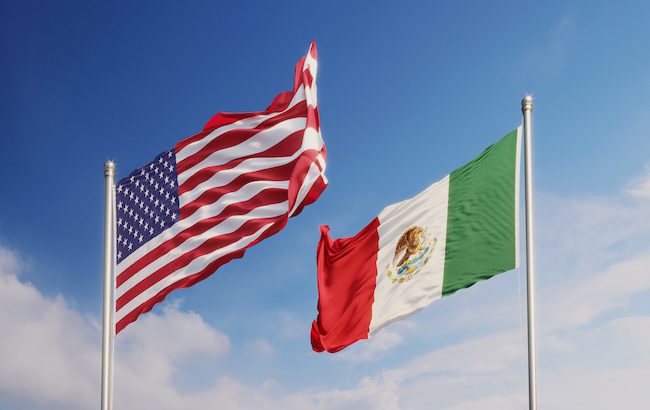Tequila brands react to looming tariffs
Gathered at the Wine & Spirits Wholesalers of America’s (WSWA) Access Live show this week, Tequila brand owners voiced their concern over the impact potential US tariffs could have on their businesses.

Tequila owners received a scare this week when US president Donald Trump levied a 25% tariff on Mexican and Canadian goods on 1 February, only to postpone them until 4 March.
Billy Erickson, sales and marketing manager for Tequila Fortaleza, said there were five panicked minutes between thinking tariffs were mere days away and learning of the delay, which will last 30 days. The quick reversal gives him confidence that a longer deal will be made.
“I see both countries working it out eventually,” Erickson said. “Long term, we’re not terribly afraid, but it does sort of feel like an axe hanging over our head at the moment.”
Still, for smaller brands like Fortaleza and others gathered in Denver, Colarado, for Access Live this week (3-6 February), the annual showcase hosted by the WSWA, the mere prospect of a 25% tariff is enough cause for concern. Keeping a competitive price point becomes more difficult when costs could potentially increase overnight.
Mara Smith is the founder and CEO of Inspiro Tequila. A former lawyer, she has looked over the memorandums pertaining to the tariffs, but finds little explanation as to how they would be calculated or enforced. “There’s not a lot of information yet for a brand to figure out what the scope is,” she said. “It’s hard to monitor because things keep changing.”
Added costs
As an independent brand, Smith says that Inspiro would have no choice but to eat the entirety of the tariffs themselves. She can’t move production out of Mexico, doesn’t have the economy of scale of a larger brand, nor a portfolio of brands that would allow her to cover the added costs associated with Tequila.
“We understand consumers are really price sensitive, so I don’t know that there’s the ability for us to be able to pass that on directly to the consumer,” she said.
Smith is planning to ship more products stateside during the 30-day delay and stock that extra inventory just in case a deal isn’t reached. There is some belief that the tariffs on Mexico and Canada are negotiation tactics used by Trump to increase border security.
“I think Congress, especially his own party, is going to give him the leverage to make the threats, and get a better deal for the United States. But will there be a permanent 25% tariff?” Erickson pondered. “I think that’s extremely unlikely.”
That said, there are still consequences of such tactics. Melanie Shelby is the founder and CEO of Enelalma Tequila. She has 25 years of experience as a lobbyist in Washington DC and Sacramento, and calls for deals to be made with diplomacy and not disrespect.
“We’ve always been a leader, and how do we lead when we are threatening the very partners that are important for brands like us to bring our products to the market,” she said.
Shelby was recently appointed to the Distilled Spirits Council of the US’ (Discus) Craft Advisory Council and says that her company will look towards trade bodies such as Discus and the leadership of Chris Swonger to navigate these quick shifts in policy.
Enelalma is mainly sold in California, where its blanco expression sits on shelves at US$100. After weathering a 30% increase in the cost of goods from a recent production run, Shelby says she would have no choice but to pass tariff increases to the consumer.
“I think the misnomer for people in the luxury, prestige space is, ‘oh, people will pay for it,’” she said. “We’re a small brand. We’re just making our footing. This could be disruptive and destroy us and other brands like us who bring our values to the table as well as exceptional products.”
‘Loss of American jobs’
Reactions to the tariffs and subsequent delays rolled in following the topsy-turvy chain of events, with the American Craft Spirits Association (ACSA) issuing a statement on 4 February expressing deep concern over the threat.
“This is yet another blow to our small business manufacturers who are already operating in a deeply challenging marketplace,’ ACSA president Margie A.S Lehrman said. “ Placing tariffs on imported goods will strip US manufacturers of shelf space, increase production costs, and hinder the development of relationships abroad.”
According to a recent survey of ASCA members, Canada and Mexico serve as important trading partners in import and export markets, and provide agricultural resources used to produce American-made products.
“Indiscriminate tariffs will skyrocket the costs on these important materials, and as a result, craft spirits businesses will likely have no choice other than to raise prices in an already viciously competitive global marketplace,” Lehrman said.
“The end result will most certainly lead to the loss of American jobs or worse, the closure of many of these small businesses.”
Related news
Sierra Tequila RTD Margaritas land in UK Lidls
